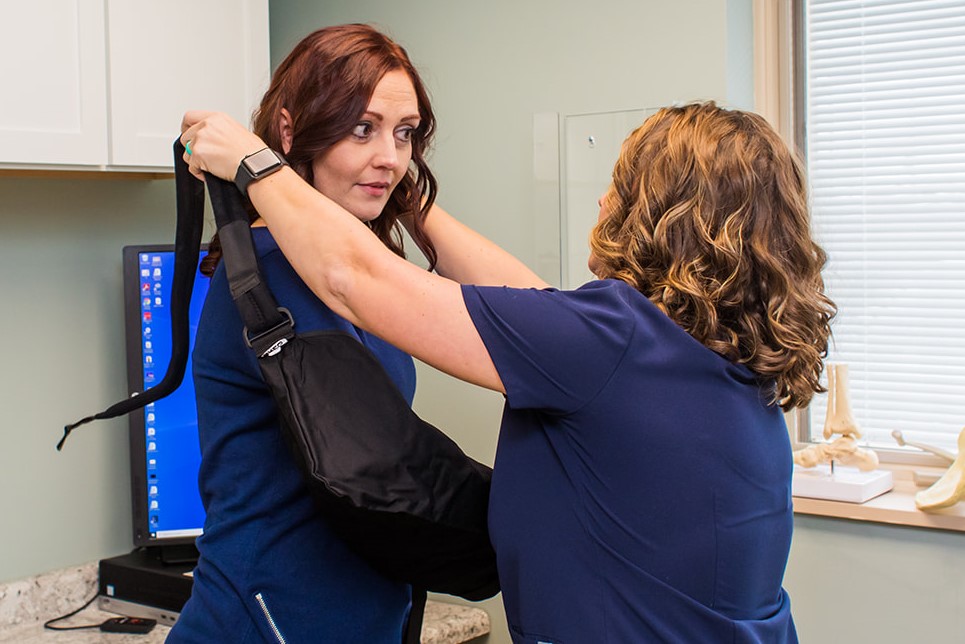Upper Extremity
Shoulder, Wrist, and Hands
Our hands serve many purposes. Hands help us eat, dress, write, earn a living, create art, and do many other activities. To do these activities, our hands require sensation and movement, such as joint motion, tendon gliding, and muscle contraction. When a problem takes place in the hand, care must be given to all the different types of tissues that make function of the hand possible.

What do hand surgeons do?
Hand surgery is the field of medicine that deals with problems of the hand, wrist, and forearm. Hand surgeons care for these problems with and without surgery. They are specially trained to operate when necessary. Many hand surgeons are also experts in diagnosing and caring for shoulder and elbow problems.
Hand surgeons are orthopaedic, plastic, or general surgeons who have additional training in surgery of the hand. To become members of the American Society for Surgery of the Hand, hand surgeons must take a full year of additional training and must pass a rigorous certifying examination.
Some hand surgeons treat only children, some treat only adults, and some treat both. Because many hand surgeons devote most of their time to examining, treating and studying the hand, they are specialists in hand care.
Why visit a hand surgeon?
When a problem takes place in the hand, care must be given to all the different types of tissues that make function of the hand possible.
Not every visit to a hand surgeon results in hand surgery.
Hand surgeons often recommend non-surgical treatment options to assist you. Sometimes, they may refer you to a hand therapist for more treatment.
Hand surgeons are specialists in hand care.
If you have pain in your fingers, hand, wrist or arm, or have other upper-extremity related concerns, you may want to consult a hand surgeon.
Examples of conditions treated by a hand surgeon are:
- Carpal Tunnel Syndrome
- Hand / Wrist / Elbow pain
- Basal Joint / Thumb pain
- Cuts on the fingers and hand
- Sports injuries to the hand and wrist
- Creating fingers from toes and other joints










